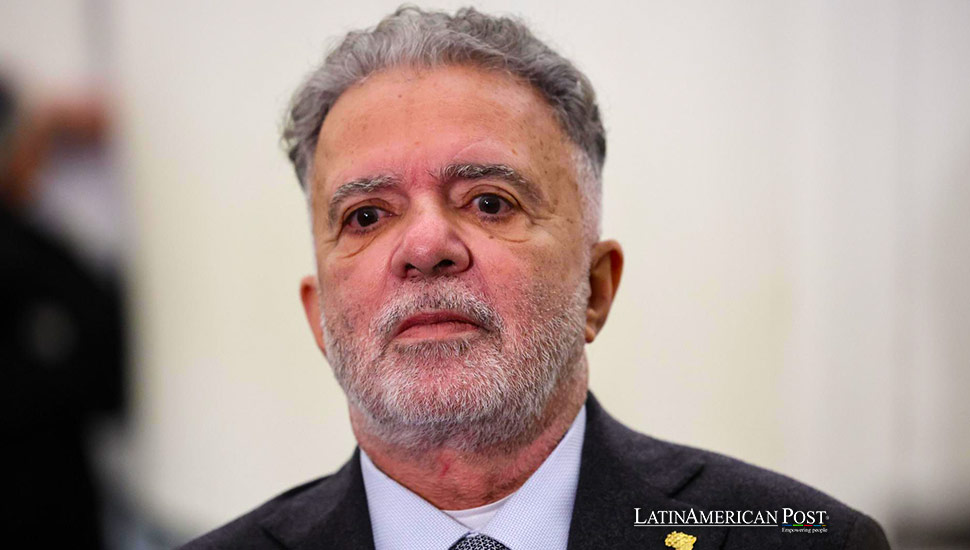Brazil Reassigns Ambassador Amidst Tensions with Israel

Brazilian President Luiz Inacio Lula da Silva has reassigned his ambassador to Israel, Frederico Meyer, to serve as Brazil’s special representative in Geneva following a diplomatic conflict sparked by Lula’s remarks comparing Israel’s actions in Gaza to the Holocaust.
In a move highlighting the fragile and often contentious nature of international diplomacy, Brazilian President Luiz Inacio Lula da Silva has reassigned Frederico Meyer, his ambassador to Israel, to serve as Brazil’s special representative to the United Nations and other international organizations in Geneva. This decision, published in the official gazette on Wednesday, comes amid escalating diplomatic tensions between Brazil and Israel.
The diplomatic rift traces back to President Lula’s controversial remarks likening Israel’s military actions in Gaza to the Holocaust. These comments led to a strong reaction from Israel, with Foreign Minister Israel Katz summoning Ambassador Meyer to declare Lula persona non grata. After this, Meyer was recalled to Brazil and has not returned to Israel. The reassignment of Meyer to Geneva is seen as a strategic move by Brazil to mitigate the fallout and maintain its international diplomatic standing.
Historical Context: Brazil-Israel Relations
Brazil and Israel have shared a complex relationship over the decades. Historically, Brazil has been supportive of Israel, being one of the first countries to recognize the state of Israel in 1949. Over the years, the two countries have engaged in various forms of cooperation, particularly in technology, agriculture, and defense.
However, Brazil’s foreign policy has often balanced between its support for Palestinian rights and its diplomatic and economic ties with Israel. The tension over Lula’s recent comments reflects this delicate balancing act. During Lula’s previous terms as president, Brazil played an active role in advocating for Palestinian statehood, which occasionally put it at odds with Israeli policies.
The reassignment of Ambassador Meyer signals a significant shift in Brazil’s diplomatic strategy. By appointing Meyer to Geneva, Lula aims to position Brazil more prominently within international organizations, possibly seeking to influence global human rights and conflict resolution policies.
According to Brazil’s Ministry of Foreign Relations, a new Brazilian ambassador to Israel will be announced soon. In the interim, the Brazilian embassy in Tel Aviv will be headed by a chargé d’affaires, ensuring that diplomatic channels remain open despite the current tensions.
The Gaza Conflict and Global Reactions
The current diplomatic spat between Brazil and Israel cannot be understood without considering the broader context of the Gaza conflict. Since October 7, when Hamas militants launched a cross-border attack resulting in significant Israeli casualties and hostages, Israel has intensified its military campaign in Gaza. The stated aim is to eradicate Hamas, which has ruled Gaza since 2007.
The conflict has resulted in heavy casualties on both sides, with Israeli sources reporting around 1,200 Israeli deaths and over 250 hostages taken and Gaza health authorities reporting over 36,000 Palestinian fatalities. These figures underscore the severe humanitarian impact of the conflict and the deep divisions it has created on the international stage.
Latin America has a varied stance on the Israel-Palestine conflict, shaped by historical, political, and cultural factors. Countries like Argentina and Chile have significant Palestinian immigrant populations, influencing their governments’ policies and public opinion toward the conflict. On the other hand, countries like Colombia and Mexico have maintained strong diplomatic and economic ties with Israel.
Brazil, under Lula’s leadership, has historically advocated for a two-state solution and has been vocal about Palestinian rights. This position reflects a broader trend in Latin America, where many countries support Palestinian statehood while also engaging in economic and technological cooperation with Israel.
Future Implications for Brazil’s Foreign Policy
The reassignment of Ambassador Meyer is likely to have lasting implications for Brazil’s foreign policy. Lula’s administration seems poised to take a more active role in international diplomacy, particularly within multilateral organizations like the United Nations. By placing an experienced diplomat like Meyer in Geneva, Brazil intends to influence global discussions on human rights, conflict resolution, and international law.
Moreover, this move is also an attempt to recalibrate Brazil’s diplomatic approach, balancing its historical support for Palestinian rights with the need to maintain constructive relations with Israel. This balancing act will be crucial for Brazil as it navigates the complex landscape of international politics.
Also read: Brazil and Central America at the Heart of Mercon’s Bankruptcy Saga
The reassignment of Brazil’s ambassador to Israel amidst a diplomatic conflict underscores the intricate and often contentious nature of international relations. As Brazil seeks to position itself more prominently on the global stage, its actions in this diplomatic spat with Israel will likely influence its foreign policy trajectory for years to come. With the eyes of the international community watching, Brazil’s diplomatic strategies will play a critical role in shaping its global image and influence.




